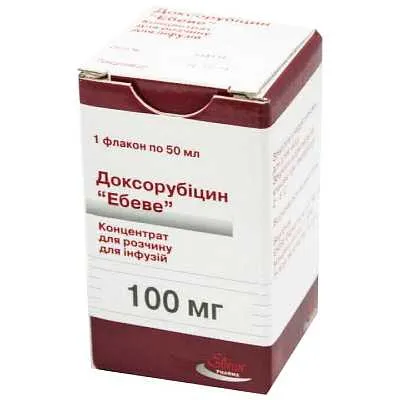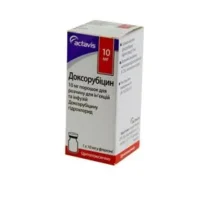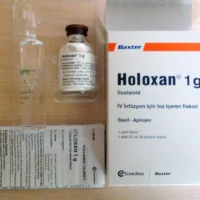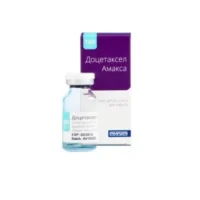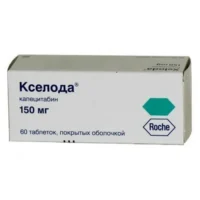Description
Doxorubicin (doxorubicin) Concentrate for Infusions 2 mg/ml. 50 ml. (100 mg/50 ml.)
Ingredients:
Doxorubicin hydrochloride is the active ingredient in this concentrate for infusions.
Mechanism of Action:
Doxorubicin exerts its antitumor effects by intercalating into DNA strands, inhibiting nucleic acid synthesis, and inducing DNA strand breaks, ultimately leading to cell death. Additionally, it generates free radicals that contribute to its cytotoxic effects.
Indications:
Doxorubicin concentrate for infusions is indicated for the treatment of various types of cancers including breast cancer, lung cancer, and ovarian cancer. It works by slowing or stopping the growth of cancer cells in the body.
Contraindications:
This medication is contraindicated in patients with severe heart problems, low blood cell counts, and those who are pregnant or breastfeeding. It should not be used in patients with a known hypersensitivity to doxorubicin.
Side Effects:
Patient may experience side effects such as nausea, vomiting, and hair loss. Close monitoring and supportive care are crucial to manage these side effects effectively.
Directions for Use:
Administered under the supervision of a healthcare provider experienced in the use of cytotoxic chemotherapy. The infusion should be given slowly into a vein.
Benefits Compared to Analogues:
Doxorubicin has been extensively studied and has shown significant efficacy in various cancer types. When used in combination with other chemotherapy agents, it has been found to significantly improve survival rates in patients with advanced cancers.
Suitable Patient Groups:
Doxorubicin can be used in specific patient groups including adults, but caution is advised in patients with pre-existing heart conditions or compromised immune systems.
Storage and Shelf Life:
Store at recommended temperature and protect from light. Check the expiration date on the packaging and do not use if expired.
Packaging Description:
The Doxorubicin concentrate for infusions is available in a 50 ml vial containing 100 mg of doxorubicin in a 2 mg/ml solution.
Clinical Evidence and Proven Effectiveness:
Doxorubicin is a widely studied chemotherapy drug with proven efficacy in various cancer types. Research published in the Journal of Clinical Oncology has shown that doxorubicin, when used in combination with other chemotherapy agents, significantly improves survival rates in patients with advanced cancers.

